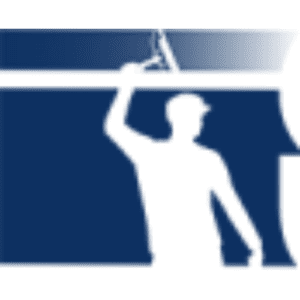Denver, Colorado’s unique climate is a blend of high altitude, dry air, and unpredictable weather patterns. These elements take a toll on homes, leading to seasonal wear and tear. From blazing summers to freezing winters, understanding how to maintain your home is key to avoiding expensive repairs. This guide covers what you need to know about protecting your home in Denver through every season, highlighting specific home maintenance services that can help.
Understanding Denver’s Weather Challenges
Denver’s climate is known for rapid changes. With over 300 days of sunshine a year, the Mile High City experiences intense sun exposure, high UV levels, and dry air. At the same time, temperatures can shift dramatically, leading to freeze-thaw cycles that cause significant damage to homes. The combination of hot summers, cold winters, and fluctuating spring and fall conditions presents unique challenges for homeowners.
Spring: Preparing for the Freeze-Thaw Cycle
Spring in Denver is a season of contrasts. Temperatures can fluctuate dramatically, often within the same day. Snowstorms are still possible, especially in March and April, but the days gradually warm, leading to significant snowmelt. This melting, combined with nighttime freezing temperatures, creates a freeze-thaw cycle that can be particularly damaging to your home.
During this time, moisture from melting snow seeps into small cracks in your home’s exterior—whether in the foundation, sidewalks, or driveway. When the temperature drops again at night, this water freezes and expands, causing the cracks to widen. Over time, this process can lead to significant structural damage. For homes with older or compromised foundations, the freeze-thaw cycle can be especially harsh, exacerbating existing issues and leading to costly repairs if not addressed promptly.
Additionally, the changing temperatures can cause wood around windows and doors to expand and contract, weakening seals and allowing drafts to enter. This not only makes your home less energy-efficient but can also lead to increased heating and cooling costs as your HVAC system works harder to maintain a stable indoor temperature.
Tip: Perform a thorough inspection of your home’s exterior, paying close attention to windows, siding, and driveways. Cracks should be sealed before they worsen. Hiring professionals for services like pressure washing and window screen repairs ensures that your home is ready to handle the transition from cold to warm weather.
Summer: Managing Intense Sun and Dry Heat
Denver’s summers are characterized by intense sunlight, low humidity, and high temperatures. With over 300 days of sunshine each year, the sun’s rays can be relentless, especially at high altitudes. The UV exposure in Denver is higher than in many other parts of the country, which can cause accelerated wear and tear on your home’s exterior.
The effects of this intense sun exposure are most noticeable in the fading and cracking of paint, warping of siding, and deterioration of window screens. Wood, in particular, can dry out, crack, and splinter, making your home’s exterior more vulnerable to the elements. Homes with older paint or siding are particularly susceptible to damage during this season.
The dry heat of summer also puts additional strain on your home’s insulation and cooling systems. Inadequate or aging insulation can allow cool air to escape, leading to higher energy bills as your air conditioner works overtime. This is also the time of year when issues with window seals become more apparent, as gaps allow hot air to seep in, making it harder to keep your home cool.
Tip: Regularly inspect and repair window screens to keep your home cool while enjoying fresh air. Soft washing your home’s exterior can prevent long-term damage from accumulated grime and dust. Also, ensure your insulation is up to par—especially in the attic—to keep your cooling costs down.
Fall: Preparing for Cold Weather and Heavy Snow
Fall in Denver is a brief but critical time for home maintenance. As the temperatures begin to drop, the city often experiences significant temperature swings—warm days can quickly turn into freezing nights. This transition period is crucial for preparing your home for the upcoming winter.
One of the biggest challenges during fall is dealing with the accumulation of leaves and debris, particularly in gutters. Clogged gutters can lead to water overflow, which can damage your roof, siding, and foundation. As the first snowfalls begin, any water trapped in clogged gutters can freeze, creating ice dams that prevent proper drainage and lead to potential water damage inside your home.
The fluctuating temperatures can also cause the seals around windows and doors to contract, leading to drafts and inefficiencies in your home’s heating system. This is the time to ensure that your home is properly insulated and that any potential gaps are sealed to prevent heat loss during the cold winter months.
Tip: Clean your gutters and schedule any necessary insulation upgrades before the cold sets in. Well-maintained insulation and sealed windows prevent drafts and keep your home energy-efficient. Consider air duct cleaning to improve your home’s indoor air quality as you begin relying on heating.
Winter: Battling Snow, Ice, and Cold Air
Winter in Denver brings heavy snowfall, freezing temperatures, and the potential for severe weather events. The cold, dry air and significant snow accumulation can cause a range of issues for homeowners, from ice dams on the roof to frozen pipes and drafts.
One of the most significant challenges during winter is the formation of ice dams. These occur when snow on the roof melts during the day and refreezes at night, creating a barrier at the edge of the roof that prevents proper drainage. The trapped water can seep under shingles and cause leaks, leading to water damage inside your home. Additionally, the weight of snow and ice can put stress on your roof, potentially leading to structural damage.
Frozen pipes are another common issue during Denver’s winters. When temperatures drop below freezing, the water inside your pipes can freeze and expand, leading to bursts and significant water damage. Homes with inadequate insulation are particularly vulnerable to this problem, especially in areas like basements, attics, and exterior walls where pipes are more exposed to the cold.
The cold air can also seep into your home through poorly sealed windows and doors, making it difficult to maintain a comfortable indoor temperature. This not only affects your comfort but also drives up heating costs as your furnace works harder to compensate for the loss of warm air.
Tip: Regular inspections and services are essential during winter. Keeping windows clean and sealed prevents drafts. Installing additional insulation, particularly in older homes, is crucial to avoid heat loss. Additionally, air duct cleaning can help maintain indoor air quality during a time when homes are sealed up tight.
Year-Round Maintenance: Consistency is Key
No matter the season, consistent maintenance is crucial in a climate as varied as Denver’s. Routine checks and services for windows, insulation, gutters, and air ducts ensure your home remains in top condition throughout the year.
Trust SWAT Services to Help Protect Your Home
As a local business, SWAT Services understands the unique challenges Denver homeowners face. Our expertise in window cleaning, pressure washing, insulation services, and more is tailored specifically for Colorado’s climate. We’re here to help you maintain a safe, comfortable, and energy-efficient home, no matter what the weather throws your way. Reach out today to schedule a service and prepare your home for Denver’s ever-changing seasons.




